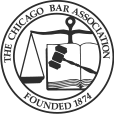
A Residential Street Turned Into a Truck Route
What should be a quiet, walkable block in Chicago’s Old Irving Park has become a dangerous cut-through for semi-trucks. Residents along Keeler Avenue are watching convoys of tractor-trailers barrel down their two-lane street where families walk dogs, kids ride bikes, and cars park on both sides.
The problem originates from the ongoing Kennedy Expressway construction. With certain ramps closed, large trucks are detouring into the neighborhood instead of staying on major routes. Local residents describe near-misses, poor air quality from diesel exhaust, and the unnerving reality of 18-wheelers dominating a road never designed to handle that volume of heavy traffic.
Neighbors aren’t blaming the truck drivers themselves and instead are pointing to a lack of clear signage and planning by the state and city. Many truckers don’t realize the Keeler exit funnels them into a no-truck zone until it’s too late.
After media coverage and mounting complaints, the Illinois Department of Transportation (IDOT) has responded with new restrictions and signage, but for many in the community, concerns remain.
IDOT’s Immediate Actions
Following outreach from ABC7 and residents, IDOT placed additional “NO TRUCKS” signage at the Keeler Avenue/Irving Park exit and installed a digital warning board on the Kennedy advising truckers to avoid the exit and use Addison Street instead.
Officials also said they are coordinating with the Chicago Department of Transportation (CDOT) and alderpeople to find more ways to protect residents.
While this is a start, residents say they still see a steady stream of semis. For pedestrians, cyclists, and families in Old Irving Park, the changes haven’t yet restored peace of mind.
Why This Matters for Drivers, Cyclists, and Pedestrians
At Keating Law Offices, P.C., our award-winning attorneys have long advocated for safer streets in Chicago, not just for cyclists and pedestrians but for everyone who shares the road. The Keeler Avenue situation highlights a systemic problem: residential neighborhoods are often the first to face danger when traffic detours and infrastructure projects funnel semi-trucks onto streets never meant to handle them.
When heavy trucks use side streets:
- Drivers face greater crash risks. Narrow lanes, limited sightlines, and oversized vehicles make it harder for cars to pass safely. A single miscalculation by a truck driver can lead to devastating rear-end, sideswipe, or head-on collisions.
- Cyclists remain vulnerable. Even a seemingly minor brush from a semi can cause life-altering injuries. On streets with no bike lanes and limited room to maneuver, the margin for error disappears.
- Pedestrians lose safe passage. Parents with strollers, children walking to school, and residents crossing the street are put in harm’s way by trucks with wide turning radiuses and significant blind spots.
This is exactly the kind of scenario where infrastructure planning collides with public safety. Without firm enforcement and smarter detour design, ordinary residents — whether driving, biking, or walking — are left exposed to unnecessary danger.
Legal Responsibility and Potential Liability
When trucks enter restricted residential streets, several layers of responsibility can arise:
Truck Drivers and Companies
If a driver ignores weight-limit signs or posted restrictions, both the driver and their trucking company may be liable if a crash occurs. Trucking companies are expected to train their drivers, provide GPS systems that account for restrictions, and enforce safe routing.
Government Agencies
Agencies like IDOT and CDOT can face scrutiny if detours are poorly marked, signage is inadequate, or traffic management fails to protect vulnerable users. Residents in Old Irving Park noted that the “no trucks over 5 tons” sign is not visible until trucks are already committed to the exit — a foreseeable problem.
Third Parties
Contractors responsible for signage, construction management firms, or even mapping platforms that fail to update routes can also contribute to creating unsafe conditions.
The Human Impact of Policy Gaps
Too often, cyclists and pedestrians are treated as afterthoughts when major roadway changes occur. Yet these road users are the most vulnerable. Unlike drivers in cars, they have no protective barrier if struck.
Old Irving Park residents have already described near misses, including a dog that was almost run over, families darting out of the way of trucks, and the frightening realization that once a semi is on Keeler, two-way traffic is nearly impossible. And with vehicles of that size, it only takes one wrong move by a truck driver for a tragedy to occur.
If You or a Loved One Was Hit By a Truck in Chicago, Count on Keating
Attorney Michael Keating and the highly skilled legal team at Keating Law Offices have dedicated their careers to making Chicago safer for everyone, including cyclists, pedestrians, and drivers. This includes not only representing crash victims but also shaping policy, such as their leadership role in passing Dennis’s Law to solidify cyclists’ legal rights on Illinois roads.
The Keeler Avenue truck detour is more than just an inconvenience. It’s a test of how seriously Chicago and Illinois take neighborhood safety during major infrastructure projects. Without accountability and effective enforcement, the risk of a devastating truck crash in Old Irving Park or any neighborhood subjected to detour traffic remains alarmingly high.
Our law firm stands with residents demanding safer streets. If you or someone you love has been injured in a crash involving a large truck in Chicago, our team is here to fight for justice and ensure your voice is heard. To see how we can help with your potential legal case, call 833-CALL-KLO or contact us online for a free consultation.
"Mike and his team went above and beyond in working to settle my case after I was hit by a car while biking. I am legitimately shocked at the outcome (to the positive) after a lot of hard-fought battles by the Keating team. A lot of firms would have settled earlier, and I am incredibly grateful that they continued to fight for me. I hope that you never have to be involved in a motor vehicle collision, but if you happen to be, I cannot recommend them more." — Stephen F., ⭐⭐⭐⭐⭐







